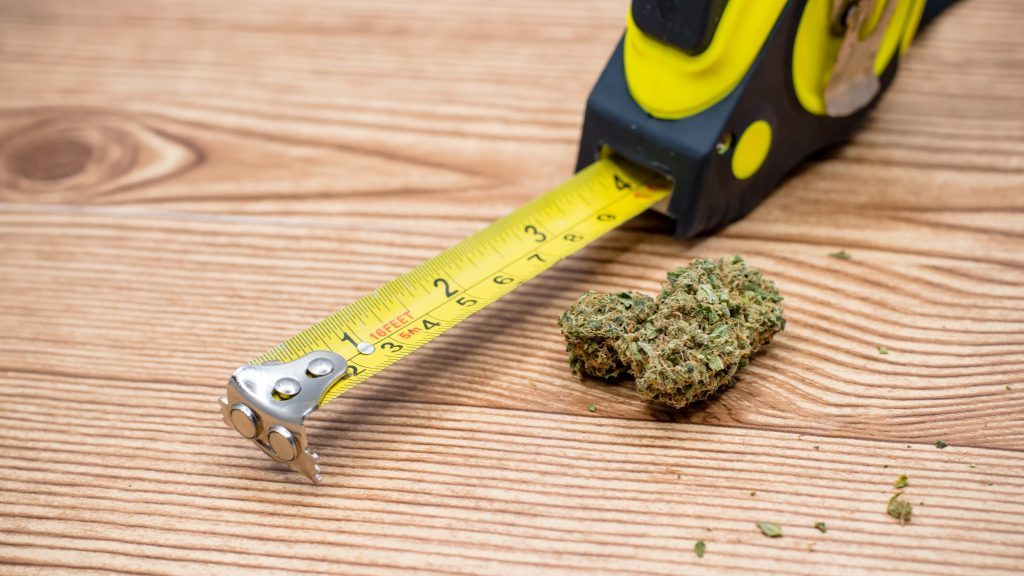Marijuana legalization has been a campaign promise, a political hot potato and as of October will be the law of the land.
But for the construction industry and safety stakeholders in B.C., it’s mostly business as usual.
Bill C-45, the Cannabis Act, received royal assent on June 21, with Prime Minister Justin Trudeau announcing a day earlier that Oct. 17 will be the date recreational marijuana use will be legal across Canada.
For construction associations, the drive to adapt to the new reality of legal recreational cannabis use has been in the works since Trudeau and the federal Liberals were elected into office in 2015.
“Everyone has been encouraging involvement and awareness in the B.C. construction industry, and we’ve been paying attention to this for a couple of years,” said British Columbia Construction Association (BCCA) president Chris Atchison.
“When you distill the uncertainty about legalization down to safety, things become clear. We take the approach that every employer and employee have the right to a safe workplace and many big companies have a drug policy in place already.”
WorkSafeBC senior prevention adviser Anne Dobson-Mack said the exact same impairment rules that apply to substance use in the workplace now will apply once recreational marijuana use is legal in the fall.
“To put this in context, right now, the only workers who are legally using cannabis are those with medical authorization to use it for a diagnosed medical condition, so that cannabis use is like prescription drug use,” explained Dobson-Mack. “After Oct. 17, when recreational cannabis becomes legal, workers will be able to legally use cannabis without medical authorization, so that cannabis use will become like alcohol use. And those with medical authorization will continue to be able to use it like a prescription drug.”
“Impairment is impairment is impairment, whether it’s alcohol, marijuana, other substances or even fatigue,” stated BC Building Trades executive director Tom Sigurdson. “We want every member on the worksite to be capable of working, irrespective of the source.”
Vancouver Regional Construction Association (VRCA) president Fiona Famulak said her organization and other construction stakeholders are doing their part to inform both workers and management about the coming legislative changes.
“Here in B.C., we are seeing the topic discussed at conferences and workshops, including VRCA’s annual Construction Leadership Forum that we held in May,” she said.
Famulak added other organizations are also providing information to help companies prepare for legal weed.
I know people that use marijuana now and they aren’t on the tools, they’re in senior management positions
— Tom Sigurdson
BC Building Trades
“There are a growing number of resources being posted online, such as The Canadian Centre for Occupational Health and Safety whitepaper, Workplace Strategies: Risk of Impairment from Cannabis, which provides guidance on addressing impairment as part of a hazard assessment, establishing an impairment policy and program, and implementing accommodation practices,” she said.
WorkSafeBC will also provide educational resources, Dobson-Mack added.
“People are really interested in the issue, and we’re going to have a cannabis-related landing page on Worksafebc.com where we will also have links to our own resources,” she said. “We’re also working on an impairment ‘checklist’ for onsite tailgate safety talks.”
While the legislation is at a federal level, Dobson-Mack said as an agency of the B.C. government, WorkSafeBC would be informed of any changes made at the provincial level.
“The B.C. occupational health and safety legislation (i.e. the Workers Compensation Act and the Occupational Health and Safety Regulation) currently includes a robust regulatory framework for addressing workplace impairment and a need to amend it has not been identified at this time,” she said.
Besides safety, impending legalization also means facilities for growing marijuana must be built and maintained, which is a potential opportunity for the construction industry.
“The legalization of cannabis will lead to new facilities being built in order to meet the quality controls required by government regulation,” Famulak outlined.
“Would we describe this as a boon in an already busy construction market? I don’t know, but there will certainly be new facilities built. There are already rezoning applications before a number of municipalities in the Lower Mainland.”
Atchison said while facilities are undoubtedly being built to produce recreational marijuana, most of what he’s heard about projects is at the anecdotal level.
“There’s not a lot of open disclosure on who is building, and it’s not being celebrated. There might be a bit of stigma attached to building those facilities, just because this is all a bit new,” he said.
But he added there are stringent parameters in place for building cannabis production facilities and that “it’s just another type of industrial product.”
“There will be direct benefits to the industry in terms of engineering and maintenance of these facilities. Anytime anything needs to get built, it’s our members doing it,” Atchison said.
While legalization at the state level in Colorado and Washington State has resulted in increased tax revenue, Sigurdson cautioned against counting on a windfall and subsequent increased government spending.
“The whole industry is in its infancy. Will there be revenue? Perhaps at some point but what are the expenditures, what will we spend on health care and extra enforcement?” he said.
“I’m just hoping in the long run, it all balances out.”
Legalization is also a larger societal shift, Atchison said, but he has not encountered resistance to the move among construction associations.
“I think we, being BCCA, the Council of Construction Associations and so forth, have been pretty quick to not overreact to a societal decision that affects all industries,” he said.
Sigurdson said in his opinion the industry is more than ready for legalization at a societal level.
“I know people that use marijuana now and they aren’t on the tools, they’re in senior management positions,” he said.
Cannabis use could take some time to become normalized, Dobson-Mack added, but the focus should be on workplace safety.
“Focusing on the cause of a worker’s impairment can involve judgmental attitudes. But by taking a functional, fitness to work approach to impairment, we can move the focus away from the cause of the impairment and focus instead on ability to perform work safely. Managers of all ages want to ensure their workers are able to perform their jobs safely,” she said.











Recent Comments